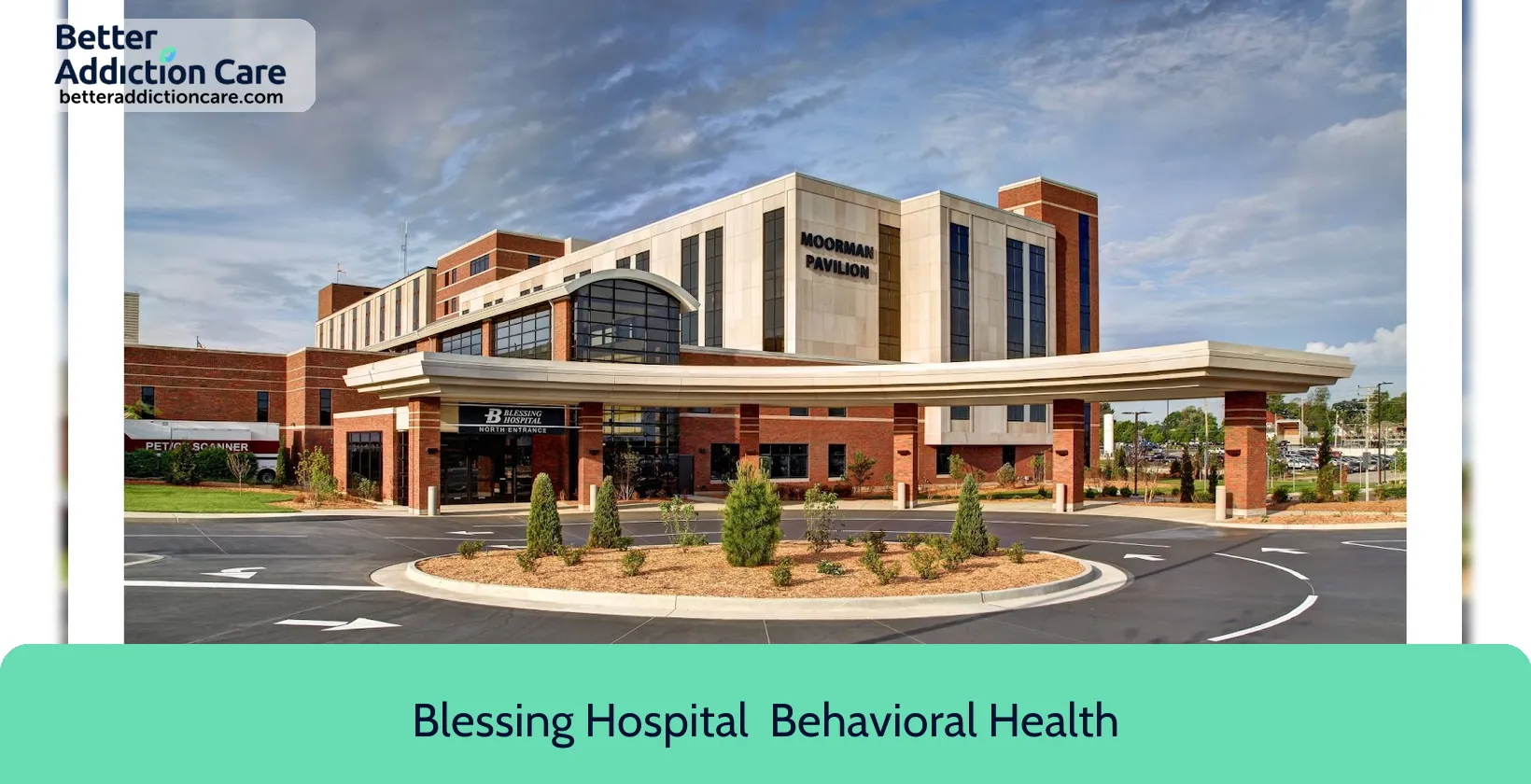Blessing Hospital - Behavioral Health
Overview
Blessing Hospital - Behavioral Health is a mental health treatment center for people seeking treatment near Adams County. As part of their treatment modalities for recovery, Blessing Hospital - Behavioral Health provides couples/family therapy, group counseling, and cognitive behavioral therapy during treatment. Blessing Hospital - Behavioral Health is located in Quincy, Illinois, accepting cash or self-payment for treatment.
Blessing Hospital - Behavioral Health at a Glance
Payment Options
- Cash or self-payment
- Medicaid
- Medicare
- State-financed health insurance plan other than Medicaid
- Private health insurance
Assessments
- Screening for tobacco use
- Comprehensive mental health assessment
- Comprehensive substance use assessment
Age Groups
- Seniors or older adults
- Young adults
- Children/adolescents
- Adults
- Seniors
Ancillary Services
- Case management service
- Chronic disease/illness management
- Court-ordered outpatient treatment
- Diet and exercise counseling
- Education services
Highlights About Blessing Hospital - Behavioral Health
6.74/10
With an overall rating of 6.74/10, this facility has following balanced range of services. Alcohol Rehabilitation: 8.00/10, Drug Rehab and Detox: 6.00/10, Insurance and Payments: 6.00/10, Treatment Options: 6.97/10.-
Alcohol Rehabilitation 8.00
-
Treatment Options 6.97
-
Drug Rehab and Detox 6.00
-
Insurance and Payments 6.00
Treatment At Blessing Hospital - Behavioral Health
Treatment Conditions
- Alcoholism
- Mental health treatment
- Substance use treatment
Care Levels
- Hospital inpatient/24-hour hospital inpatient
Treatment Modalities
- Couples/family therapy
- Group counseling
- Cognitive behavioral therapy
- Dialectical behavior therapy
- Integrated Mental and Substance Use Disorder treatment
Ancillary Services
Languages
- Sign language services for the deaf and hard of hearing
Additional Services
- Pharmacotherapies administered during treatment
- Mentoring/peer support
- HIV testing
Special Programs
- Clients with co-occurring mental and substance use disorders
- Clients who have experienced trauma
- Clients who have experienced intimate partner violence, domestic violence
- Children/adolescents with serious emotional disturbance (SED)
- Persons 18 and older with serious mental illness (SMI)
Get Help Now
Common Questions About Blessing Hospital - Behavioral Health
Contact Information
Other Facilities in Quincy

7.00

6.62

6.65

6.80

6.83

6.77
DISCLAIMER: The facility name, logo and brand are the property and registered trademarks of Hopewell Clinical 1258 Broadway Street, and are being used for identification and informational purposes only. Use of these names, logos and brands shall not imply endorsement. BetterAddictionCare.com is not affiliated with or sponsored by Hopewell Clinical 1258 Broadway Street.

